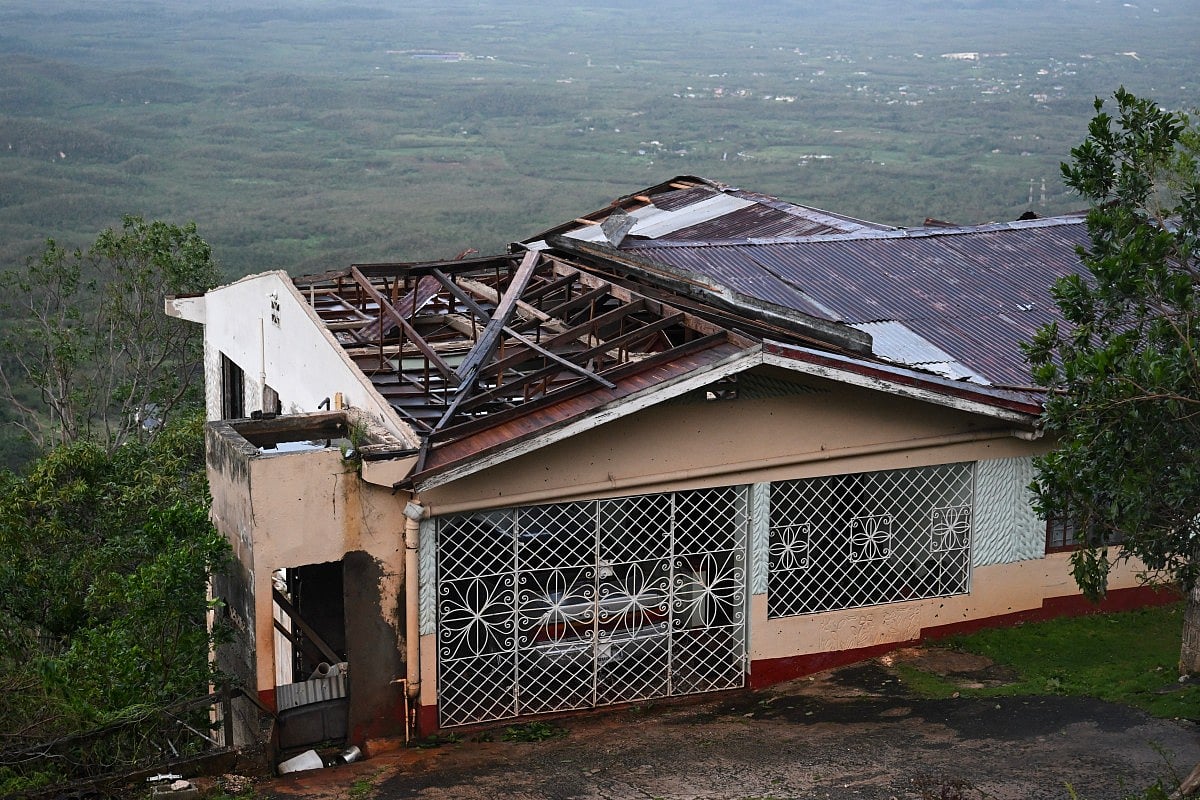Hurricane Melissa Devastates Southwestern Jamaica
Hurricane Melissa has left a significant mark on southwestern Jamaica, resulting in severe damage and disruption. The Category 5 storm, one of the most powerful in Atlantic history, struck the island with winds reaching 295 kph, leading to devastating flooding and destruction across various communities.
Impact on Communities
The storm has caused extensive flooding, with many areas submerged and homes suffering severe structural damage. Roofs have been torn off buildings, and landslides have blocked critical roadways, complicating recovery efforts. The aftermath has left approximately 15,000 residents seeking shelter, while around 540,000 customers, or 77% of the island’s population, are currently without electricity.
Recovery Efforts
Authorities are working diligently to clear debris and restore essential services, but they caution that recovery may take considerable time. Emergency crews are focused on ensuring safety and accessibility, while local and national agencies coordinate relief efforts to assist those affected by the storm.
FAQs
What areas in Jamaica were most affected by Hurricane Melissa?
Southwestern Jamaica experienced the brunt of the storm, with significant flooding and damage reported in various communities.
How many people are currently in shelters?
Approximately 15,000 residents have sought refuge in shelters due to the destruction caused by the hurricane.
When can residents expect power restoration?
While specific timelines for power restoration are not yet available, authorities are actively working to restore electricity as quickly as possible.
Conclusion
The devastation caused by Hurricane Melissa has left many communities in need of urgent assistance. Recovery efforts are underway, but it will take time to restore normalcy. Residents are encouraged to stay informed and follow updates from local authorities as the situation develops.
Hurricane Melissa is part of a growing trend of increasingly powerful storms in the Atlantic, attributed to climate change and rising sea temperatures. The storm’s rapid intensification into a Category 5 hurricane highlights the unpredictable nature of tropical cyclones in recent years. Meteorologists have noted that warmer ocean waters can fuel storms, leading to more severe weather events that pose significant risks to coastal communities. This trend raises concerns about future preparedness and resilience in regions like Jamaica, which are frequently impacted by hurricanes.
In addition to immediate physical damage, the storm’s aftermath poses long-term challenges for the affected communities. The destruction of infrastructure, including roads, bridges, and public facilities, will require substantial investment and time to rebuild. Economic activities, particularly in agriculture and tourism, are likely to suffer as a result of the storm’s impact. Many farmers may face crop losses, which can affect food supply and local economies. The tourism sector, a vital part of Jamaica’s economy, may also see a decline as recovery efforts take precedence and travel advisories are issued.
International aid and support will play a crucial role in the recovery process. The Jamaican government is expected to reach out for assistance from neighboring countries and international organizations to help address the immediate needs of those affected. Humanitarian aid, including food, water, and medical supplies, will be essential in the days and weeks following the hurricane. Additionally, the rebuilding phase will require collaboration between local authorities, non-governmental organizations, and international partners to ensure that communities are not only restored but also fortified against future storms.
As recovery efforts continue, the resilience of the affected communities will be tested. Local leaders and residents are likely to engage in discussions about disaster preparedness and mitigation strategies to better equip themselves for future events. This may include investing in better infrastructure, enhancing early warning systems, and promoting community awareness programs. The experience of Hurricane Melissa could serve as a catalyst for change, prompting a reevaluation of policies and practices related to disaster management in Jamaica and similar vulnerable regions.
Also Read:
Hurricane Melissa: Unprecedented Strength and Climate Impact







